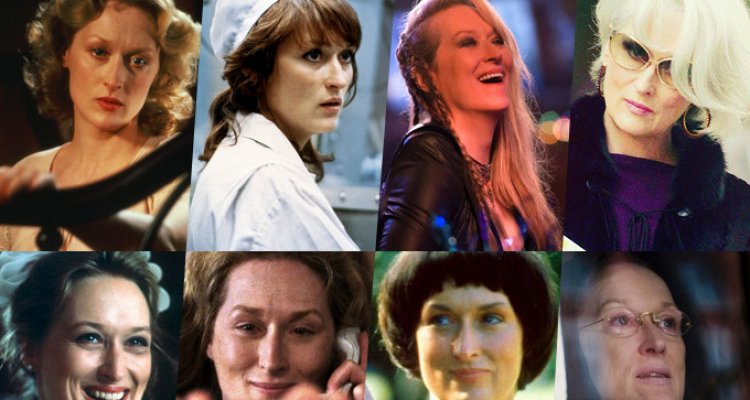
“Postcards From The Edge” (1990)
The 90s was something of a tumultuous decade for Streep as she transitioned away from the serious dramas and romances that became synonymous with her name in the 80s into lighter territory. While she did receive a Globe nomination for her farcical performance in the 1989’s “She-Devil,” it was really “Postcards From The Edge” the year after that sealed the deal on her surprisingly well-honed comedic chops. The combination of the professional familiarity she’d built up with her friend Mike Nichols (this was their third film together), her first-hand experience of being an actress in Hollywood, and working opposite the legendary Shirley MacLaine, paved the way for Streep to deliver one of the funniest turns of her career. She nails the insecurities, paranoia, and racked-up tension that befit a drug-addled starlet like Suzanne Vale (based on Carrie Fisher‘s quasi-autobiographical novel), and watching her square-off against MacLaine is an infinitely entertaining series of ding-dongs. She laughs, she cries, she cracks wise, she screws up and she even sings; her country number over the end credits being the final proof that Streep’s bow has all the strings.
READ MORE: Meryl Streep’s 10 Musical Warm-Up Acts Before ‘Ricki and the Flash’ (Video Clips)
“The Bridges of Madison County” (1995)
After the early 90s and a handful of middling to poor titles (“The House of the Spirits,” “The River Wild”) which mark the only major blip in an otherwise ridiculously consistent career, Streep landed the female lead in Clint Eastwood’s elegiac “The Bridges of Madison County,” a tale of a four-day romance and a lifelong memory. The Iowan countryside has never looked this romantic, and the film is rightly considered to be that rarity which does its book one better, creating something wonderful from a fairly mediocre novel (though a massively bestselling one: your Mom has a copy). “I was just going to have some ice tea, and then, um, split the atom. But, that can wait.” These playful words are spoken by Francesca Johnson (Streep) in her first encounter with Robert Kincaid (Eastwood). Within a single sentence, you see her starting to fall in love. Francesca is Italian-born which adds another pitch-perfect accent to Streep’s arsenal, but it’s the way she turns from skeptical, lonely, woman into a giddy teenager in love, and back to sensible matriarch who can conceal her heart from those who know her best, that yields her best performance of the decade, by some margin.

“One True Thing” (1998)
It may be a couple degrees north of a Lifetime movie, manipulating the tear ducts like an under-worked plumber, but Carl Franklin‘s “One True Thing” would’ve been headed straight for the TV movie garbage bin were it not for the performances on display, and Karen Croner’s heartfelt screenplay. In reality, it should now and forever be referred to as Meryl Streep’s “One True Thing” because she basically carries the whole thing on her shoulders, even eclipsing what are very fine performances by Renee Zellweger and William Hurt. Streep plays Kate Gulden, a housewife who has a strained relationship with her daughter Ellen (Zellweger) and has secretly kept up with her husband George’s (Hurt) philandering ways. When Ellen comes home and discovers that Kate is dying of cancer, the two grow closer and Ellen learns more than she ever thought she could from her mother. It’s weepy, but brush aside the “disease-performance” cliches and you’ll see one of Streep’s most organic turns, and probably one of the warmest of her career. She moves mountains with her “it’s so much easier to be happy” speech, and adds incredible depth to a character that could have been one side of a Hallmark card in lesser hands.
“Adaptation” (2002)
The winning combination of director Spike Jonze and writer Charlie Kaufmangave Streep one of the most memorable supporting turns of her career. Sure, “Adaptation” is mostly remembered for its brilliant screenplay, one of Nicholas Cage‘s career-best roles as two competing twin brothers, and Chris Cooper‘s unforgettable, Oscar-winning, turn as hick botanist John Laroche. But in midst of the film’s jungle of original wilderness and absurdist reality is Meryl Streep’s softly exquisite, unassuming, and plain ol’ fun portrayal of author Susan Orlean. It’s one of the best examples of the kind of immensity Streep can bring to the most ordinary of characters, a lonely woman who is unhappy with her conventional existence and who—to her own surprise and detriment—falls in lust with the repellent Laroche in an effort to patch up the passionless void in her life. Watch her converse with Laroche’s horticulturist for some hilarious acting-as-reacting; check the bathroom scene when she realizes that she’s falling for Laroche for her knack to convey so much in just a single shift in expression, and marvel at the “dial tone” moment for just how silly and free Streep can let herself be.

